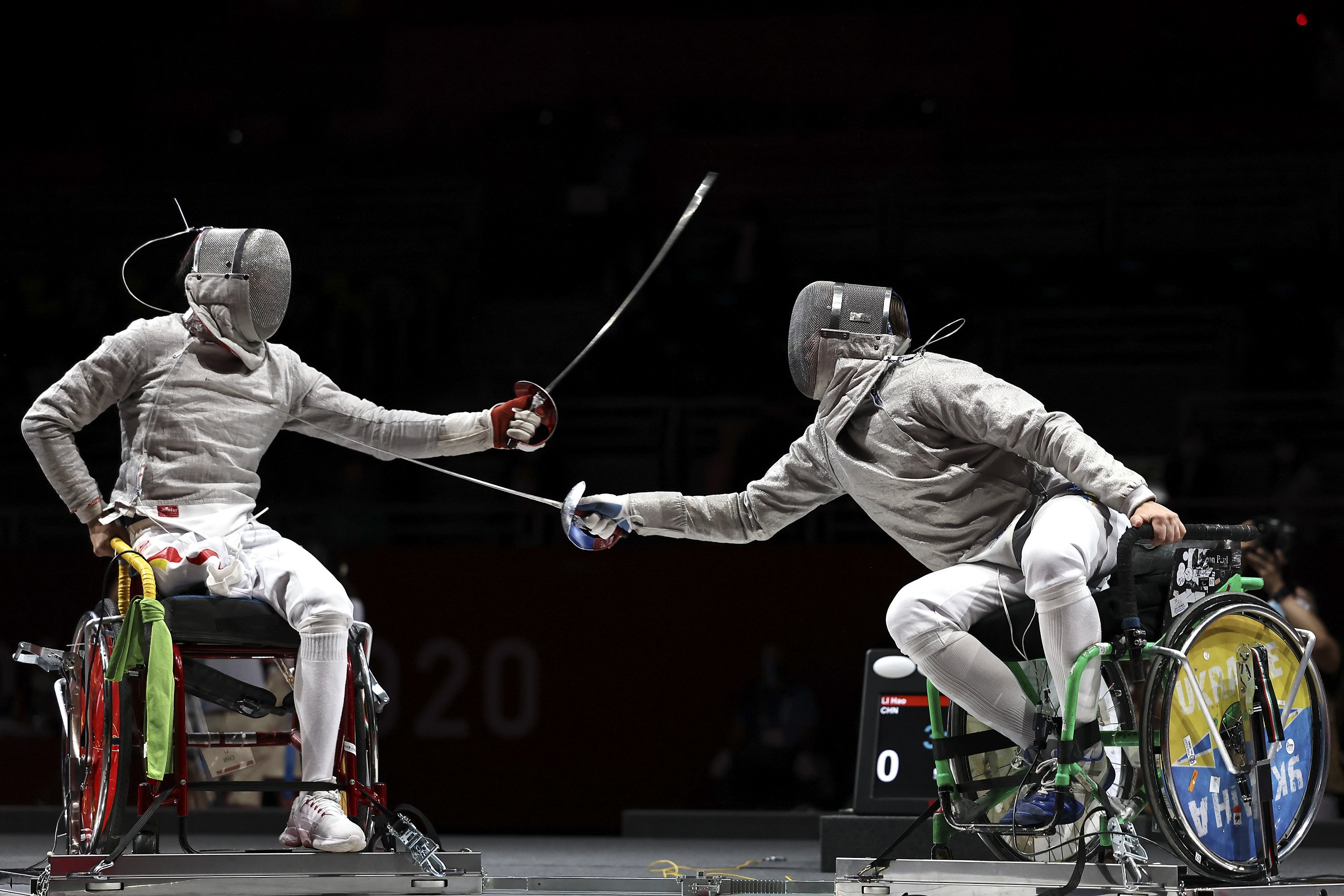
PARIS – The upcoming Paralympics in Paris hold monumental significance for Ukraine’s disabled veterans, with exceptional performances poised to offer solace and a sense of purpose to those maimed in battle, according to Artem Manko, a silver medallist in fencing at the Tokyo Games.
Manko, now 25, has observed a profound shift in how disabled individuals are perceived in Ukraine. He attributes this change to the country’s impressive medal tally in previous Paralympics, which has elevated the respect and acceptance of disabled people to unprecedented heights. However, he acknowledges that for veterans who have endured life-altering injuries since Russia’s incursion in February 2022, the psychological adjustment remains a formidable challenge.
This is why Manko emphasizes the critical importance of maintaining Ukraine’s dominance when the Paralympics commence on Wednesday. Ukraine’s previous stellar performances, including third place in Rio and sixth in Tokyo, have not only uplifted the nation’s morale but have also enhanced the societal acceptance of disabilities.
“Securing medals at the Paralympics does more than just boost spirits back home—it transforms societal attitudes towards disability,” Manko shared during a phone interview from his training camp last week. “Following our success at the last Paralympics, the nation was inspired, and we reached an unprecedented level of disability acceptance. This is crucial now more than ever, as many soldiers are returning from the battlefield with severe injuries—missing limbs, confined to wheelchairs. It is vital for them to see that disabled individuals are respected and integrated into society.”
Yet, the road to these Games has been fraught with disruptions for the Ukrainian team. Many athletes have struggled to maintain consistent training regimens, echoing the hardships faced by their fellow countrymen in their daily lives.
Manko, however, has had the opportunity to train in Germany, a respite facilitated by an invitation extended by their German counterparts two years ago. Others, like Tokyo bronze medallist Anna Hontar, have not been as fortunate. The 20-year-old swimmer, a two-time world champion in the 50 meters freestyle, expressed both excitement and apprehension as she prepares for her second Paralympics.
“Every preparation for competition is critical and challenging, but this time it’s especially tough,” Hontar noted. “Missile attacks and air raids disrupt our training, forcing us to seek shelter, which takes a toll on our mental state. The recent explosions I heard in Poltava left me shaken and sleepless.”
For those training abroad, like para-badminton champion Oksana Kozyna, the experience comes with its own set of challenges. Kozyna, who made history as the first Ukrainian world champion in her sport in 2022, found herself without a sparring partner after relocating to France following the invasion. Yet, it was the emotional strain of leaving her family behind that weighed most heavily on her.
“Leaving your family is never easy, especially when you’re close,” Kozyna admitted. “I had no choice but to move to another country to represent Ukraine in sports. This decision is deeply personal and painful for me. It echoes my parents’ decision to leave me when I was born. Now, I fear for their safety every day, knowing a bomb could strike at any moment.”
Adding to the tension for the Ukrainian athletes is the presence of 96 Russian and Belarusian competitors at the Paralympics. Though they will compete under a neutral flag and are barred from the opening and closing ceremonies as a response to the invasion, their participation remains a contentious issue.
“I am appalled,” Hontar said. “It’s outrageous. I can’t comprehend how it’s possible to compete alongside individuals who may support the very aggression that has torn my country apart. I returned from Nikolaev to Kherson on the first day of the war, and just two days later, Kherson was captured. I spent a month under occupation. The memories are still fresh and painful.”
As Ukraine’s Paralympians prepare to compete in Paris, they do so not just for medals, but for the dignity and recognition of all disabled individuals back home. Their resilience in the face of adversity continues to inspire a nation grappling with the harsh realities of war.
